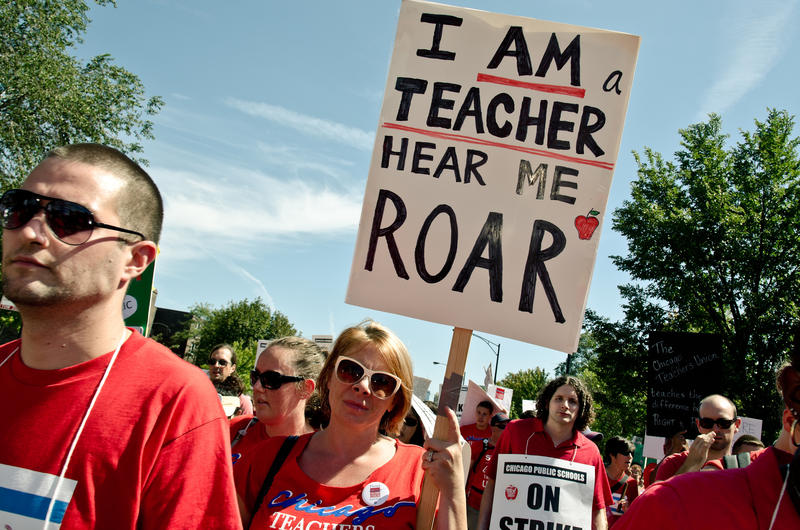Special to WorldTribune.com
By David W. Goetze, Wake Forest Weekly
As teachers from across our State prepare to gather in Raleigh on May 16 to demand higher pay, it would benefit everyone considering the merits of their quest to understand a few things about just where we are in educating our children here in North Carolina.
Over the last few years, less than one in five high school graduates were able to score at or above the national average on the ACT according to data provided by NC Department of Public Instruction. This doesn’t happen because of a few bad teachers here and there. This is system failure at all levels down to each classroom teacher, and in reality, it is nothing new at all.

Here is a little first-hand history of education quality in NC, especially the Raleigh area where I grew up. We generally had 25+ students in an elementary, junior high or high school classroom. If you misbehaved you got spanked — plain and simple. Teachers handled it without complaint.
We didn’t have school shootings and no one protested their pay was too low. We were taught how to read, write, spell and calculate, and to do it in our heads or on paper, not on any machine that did half the thinking for us. When I got to college at NC State in the early 1970’s, any two errors in spelling, grammar or punctuation, or combination of them, in any paper you wrote received a mandatory grade of F- no excuses, no exceptions. It didn’t matter what professor, course or discipline or how well the paper was otherwise written. Standards were stringent, clear and enforced. If you had not yet mastered the basics, you were not ready to take on advanced learning.
By the mid-1980’s when I was an Assistant Professor at one of the 16 UNC campuses, I had hardly a single freshman in any of my classes who could have met that kind of standard, proven by the multitude of failing grades I gave out on their first writing assignment. Most could barely function at an 8th grade literacy level (and we knew because we subsequently tested them). It was clear that during the 15 years between my schooling and teaching, education quality took a real nose-dive in NC.
I had taken it for granted that the rule was still in force and universal to the UNC system, but I was counseled and instructed by the department head that no such rule existed so I could not impose or enforce it. Grades were changed at their direction. I am sure some of my students graduated from there having raised their literacy to only a 12th grade level, and some wonder why a diploma from one school is worth more in the marketplace than one from another school.
As much as I rightly blame Democrats for their failure to keep teacher pay on par over the years when they held the reins of power in Raleigh, the failings of their policies go back far further and deeper than a few administrations or issues of mere compensation. It didn’t use to be this way, and the only real change is that the quality of the instruction and the standards expected to be met from it in K-12 and the university level have both declined to an alarming and unacceptable degree.
Raising teacher pay isn’t likely to change much. I don’t think many teachers are suddenly going to start being better at their jobs because they got a bump in their paychecks. If they do, then they don’t belong in any classroom in the first place. If they do raise the pay, perhaps it will allow us to recruit better talent as the replacements for many of them, perhaps even some of those gathering in Raleigh.
We are seeing their results in the young men and women we encounter where we shop, eat, work and relax. But it should be no small wonder that they hold the same beliefs as their teachers, that the outcomes will surely improve if only we pay them more.
David W. Goetze, Major (Ret), U.S. Army Military Police Corps, is an international business development consultant.
